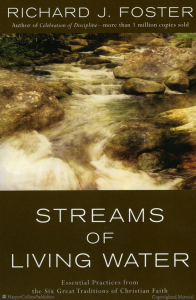
Last month, I wrote an article for the Washington Post about the label “evangelical” and why I no longer identify as an evangelical. It struck a chord. Numerous people have reached out to me personally, and the article has been republished in various newspapers around the country, most recently in Tulsa (see photo). It was even translated into German.
On the one hand, in this article I was explaining why I once identified as an evangelical and no longer use that term to describe myself. Yes, it has to do with the politicization of the word. BUT the bigger point I was trying to make is that I’m not taking up a different label. I’m not opposing evangelicals. I remain aligned by faith in Jesus with my evangelical brothers and sisters even if we make different choices in the voting booths.
In walking away from the label evangelical and refusing to take up a different label, I’m trying to resist the temptation to cut myself off from other Christians. As I write in the article:
“I am still tempted to categorize my Christian friends with words like “liberal” or “progressive” or “orthodox” or “conservative” or “evangelical.” I am still tempted to judge the faith of other people according to my standards of who and what constitutes Christianity. But when I stop and ask how I see God’s work in their expressions of faith — when I stop and consider the expansive love of God at work in and through countless people, people like me, people who have our theology wrong plenty of the time, people who have our theology right and still behave badly, people who are bumbling around in a world of sin and are still at our core beloved by God and invited to participate in God’s work in the world — when I do that, I start to believe that we are Christians.”
 I have been reading Richard Foster’s book Streams of Living Water this fall, (here’s a link to a summary), and I will probably write more about how this book has influenced my thinking on another day. But suffice it to say, I want to rejoice in the ways my evangelical heritage has given me a love for the Bible and for telling people the good news about Jesus. And I also want to rejoice for all the other ways people express their faith in Jesus–prayer, serving others, working hard–and I want to learn from those Christians as well.
I have been reading Richard Foster’s book Streams of Living Water this fall, (here’s a link to a summary), and I will probably write more about how this book has influenced my thinking on another day. But suffice it to say, I want to rejoice in the ways my evangelical heritage has given me a love for the Bible and for telling people the good news about Jesus. And I also want to rejoice for all the other ways people express their faith in Jesus–prayer, serving others, working hard–and I want to learn from those Christians as well.



